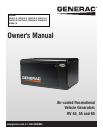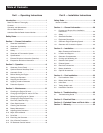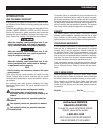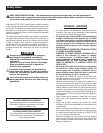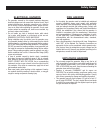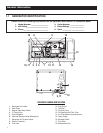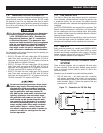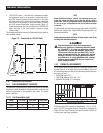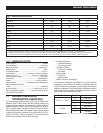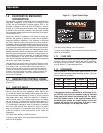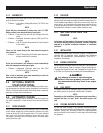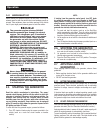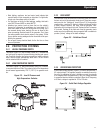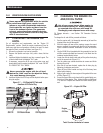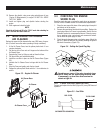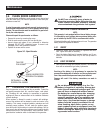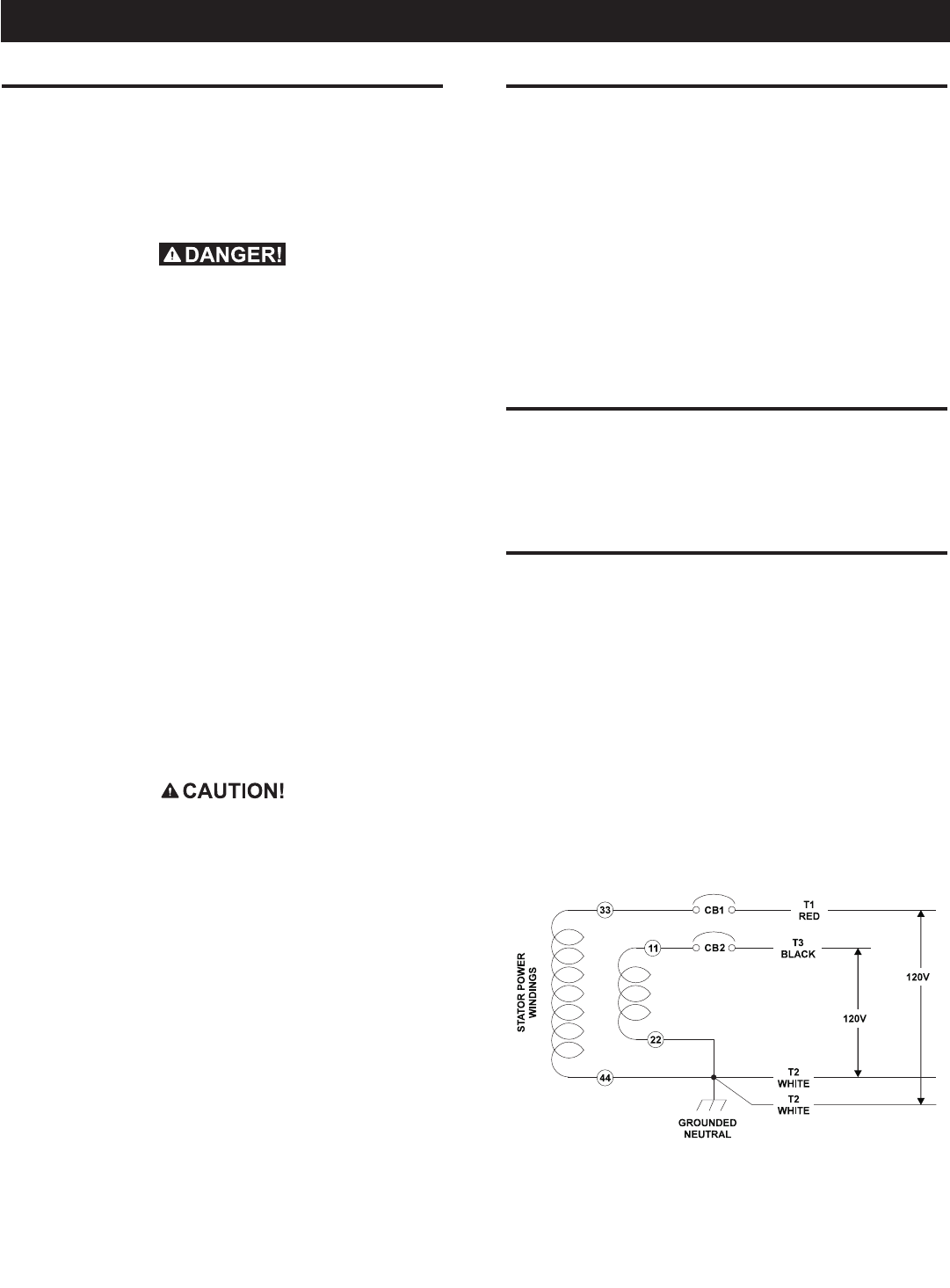
5
1.2 GENERATOR APPLICABILITY
These generators have been designed and manufactured for sup-
plying electrical power for recreational vehicles. DO NOT modify
the generator or use it for any application other than for what it
was designed. If there are any questions pertaining to its applica-
tion, write or call the factory. Do not use the unit until advised by
competent authority.
For fire safety, the generator must have been
properly installed in compliance with ANSI
119.2-1975/NFPA 501C-1974, “Standard for
Recreational Vehicles, Part III – Installation
of Electrical Systems.” The generator also
must have been installed in strict compliance
with the manufacturer’s detailed installation
instructions. After installation, do nothing
that might render the unit in noncompliance
with such codes, standards and instructions.
Use the generator set to supply electrical power for operating one
of the following electrical loads:
RV 45 G: 120 and/or 240 volts, single phase, 60 Hz electrical •
loads. These loads can require up to 4500 watts (4.5 kW) of
total power, but cannot exceed 37.5 AC amperes of current at
120 volts (breaker is limited to 30 Amps).
RV 55 G: 120 and/or 240 volts, single phase, 60 Hz electrical •
loads. These loads can require up to 5500 watts (5.5 kW) of
total power, but cannot exceed 45.8 AC amperes of current at
120 volts or exceed 22.9 AC amperes at 240 volts.
RV 65 G: 120 and/or 240 volts, single phase, 60 Hz electrical •
loads. These loads can require up to 6500 watts (6.5 kW) of
total power, but cannot exceed 54.1 AC amperes of current at
120 volts or exceed 27 AC amperes at 240 volts.
n
Do not overload the generator. Some instal-
lations may require that electrical loads be
alternated to avoid overloading. Applying
excessively high electrical loads may dam-
age the generator and may shorten its
life. Add up the rated watts of all electrical
lighting, appliance, tool and motor loads
the generator will power at one time. This
total should not be greater than the watt-
age capacity of the generator. If an electri-
cal device nameplate gives only volts and
amps, multiply volts times amps to obtain
watts (volts x amps = watts). Some elec-
tric motors require more watts of power (or
amps of current) for starting than for con-
tinuous operation.
1.3 INSTALLATION
This Owner’s Manual has been prepared under the assumption
that a competent, qualified technician installed the generator into
a recreational vehicle. We also assume the installer complied
with all applicable codes, standards and regulations pertaining to
installation.
An INSTALLATION MANUAL was shipped with the generator. That
Manual contains manufacturer’s instructions and recommenda-
tions for installing the unit into an industrial vehicle. After installa-
tion, installers should forward the Installation Manual to Owners/
Operators for their information.
Owners/Operators have the responsibility to make sure that noth-
ing is done that might render the installation unsafe or in non-
compliance with applicable codes, standards and instructions.
1.4 SAFETY
Before using the generator set, carefully read GENERAL SAFETY
RULES inside the cover. Comply with these RULES to prevent
accidents and damage to equipment and/or property. The manu-
facturer suggests copying and posting the GENERAL SAFETY
RULES to potential operators of this equipment.
1.5 GENERATOR AC CONNECTION
SYSTEM
These air-cooled generator sets are equipped with dual stator
AC power windings. These two stator windings supply electrical
power to customer electrical loads by means of a dual 2-wire
connection system.
Generators may be installed to provide the following outputs:
1. 120 VAC loads only — two loads, each with a maximum
total wattage requirement equal to half of the generator’s
rated power output (in watts), and 120V across the generator
output terminals. Figure 1.1 shows the generator lead wire
connections for 120VAC ONLY.
Figure 1.1 – Connection for 120 Volts Only
General Information



